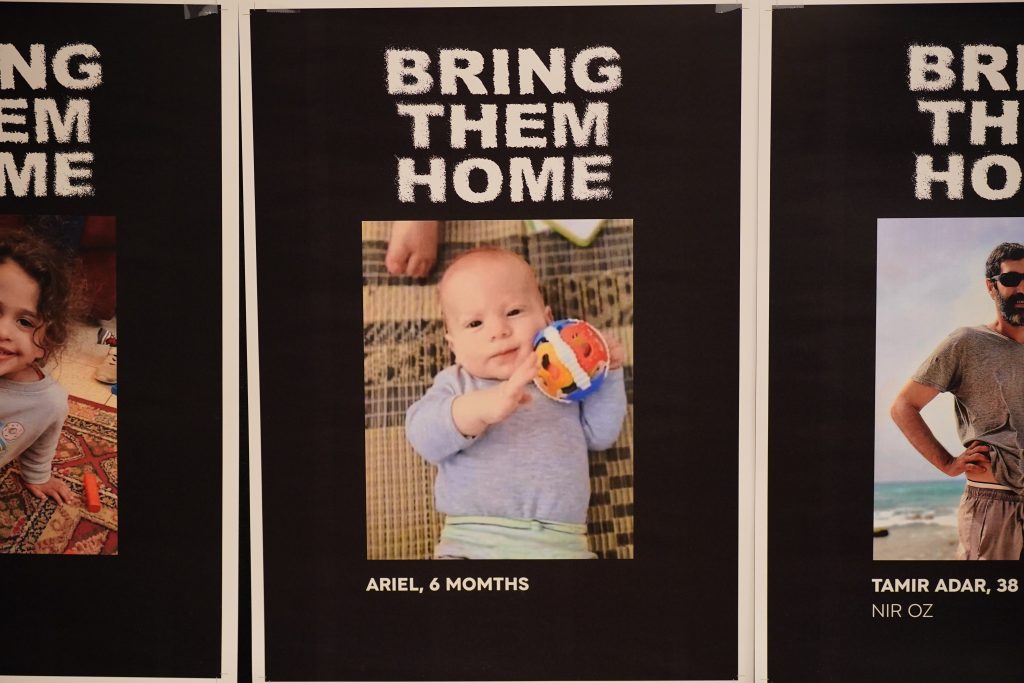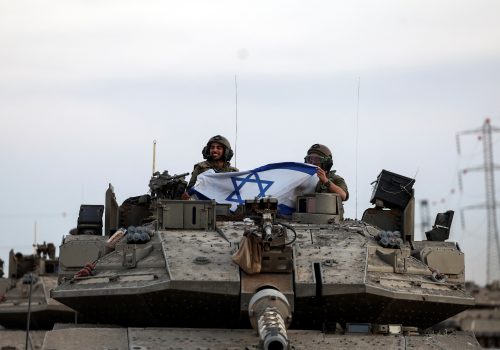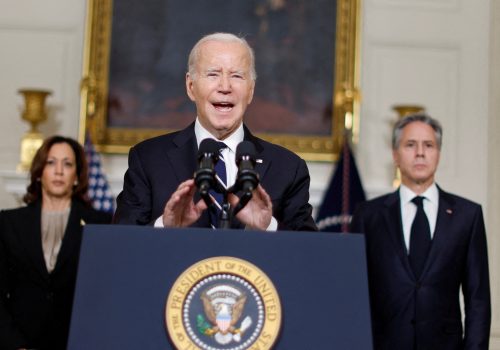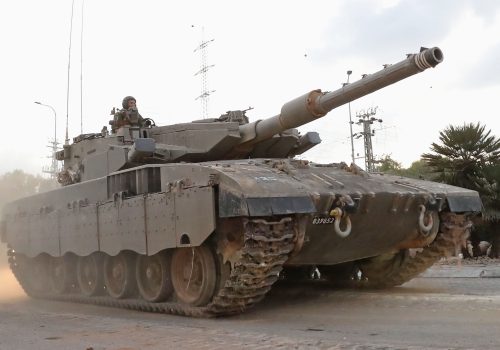The indefensible violence and destruction that terrorist organizations commit can obscure an important reality: Whatever else they are, terrorist organizations are also organizations. They have to fundraise, justify their existence to supporters and donors, and provide results that move their stated mandate forward. For Hamas and the Palestinian Islamic Jihad (PIJ), attacks and operations that garner international attention against Israeli targets help to justify continued support from their primary sponsor, Iran. It also means that they must stay relevant in order to drive additional fundraising and increase their credibility. The bigger the attack or operation, the better the potential financial and material return.
In its brazen assault on Israel on October 7, Hamas and PIJ abducted around 150 Israeli and foreign hostages—many of them children and the elderly. On Tuesday, US President Joe Biden confirmed that Americans were among Hamas’s hostages. As Israel, the United States, and other countries decide what to do next, they will need to factor in the full complexity of the situation.
Often hostage situations are about financial gain and are local in nature. The abductors seek to enter into a negotiation in which the abductees’ family or government trade something of value for their release. To some extent, this is true of the hostages in Gaza, but they are also an international play for Hamas and the PIJ, and that distinction makes a big difference.
Sadly, the hostages will be used for propaganda purposes. The digital, print, and audio content that comes as a result of this large-scale hostage taking will be used by Hamas, PIJ, and Iran for years to come as a tool to rally support and to inspire confidence that Israel can be hit where it hurts most—its people.
Rarely is the taking of hostages a short-term tactic. Rather, hostages are used as a tool to buy time, remind an opponent that they have a weakness, and demonstrate strength and capability to supporters. If, in the coming days and weeks, hostages are forced to make videoed or live-streamed statements, then it will remind Hamas’s and PIJ’s supporters of the groups’ strength and their ability to conduct successful operations inside Israel proper. This may then inspire support among Palestinians who were on the fence about supporting Hamas or PIJ and those who are anti-Israel. It will be a constant reminder of a weak moment in Israel’s history, as Israel Defense Forces Corporal Gilad Shalit’s five-year detention was.
These terrorist organizations may have intended to eventually trade the hostages for hundreds of their imprisoned fighters, as was the case in Shalit’s release. However, the terrorist groups’ calculus could change if they feel that murdering the hostages on film or using them as human shields during an attack would garner attention and additional support from Iran and others. In both cases, the influence benefit to Hamas and the PIJ is that they will appear strong, in control, and devout in their cause within their sphere of influence as they obtain free media coverage and global political leaders’ attention. Digital content, written articles, and general community chatter about the use of the hostages will spread outside of the Palestinian territories and build a feeling of a common cause or community within anti-Israel camps. The content will likely also be used, and manipulated, to sow discord among the populations of countries that support Israel or are anti-Iran, as a means to retaliate for their support for Israel.
This is a horrific vision of what could play out, and one that makes the rescue of the hostages all the more urgent.
Jennifer Counter is a nonresident senior fellow in the Forward Defense program in the Atlantic Council’s Scowcroft Center for Strategy and Security.
Further reading
Tue, Oct 10, 2023
Live expertise: Get the latest insight on the Israel-Hamas war
New Atlanticist By
Atlantic Council experts are analyzing the rapidly unfolding events in the Middle East as they happen. Find the latest here.
Thu, Oct 12, 2023
Israel, Ukraine, and how Biden should connect the dots
Inflection Points By Frederick Kempe
When Biden does get around to making his speech on Ukraine, he should discuss the attacks on Israel and how the US and its allies face the greatest threat to global order since the 1930s.
Wed, Oct 11, 2023
What to expect from Israel’s ground invasion of Gaza
New Atlanticist By Alex Plitsas
Israel appears set to initiate a months-long ground campaign that is designed to completely eliminate the terrorist threat posed by Hamas and to prevent and deter a attack like October 7 from ever happening again
Image: Pictures of loved ones who have been captured by Hamas on display during a Defend Israeli Democracy UK press conference at Plaza Westminster Bridge Hotel in London by Sharon Lifschitz and Noam Sagi, two London-based British Israelis whose parents are among the hostages held by Hamas in Gaza. October 12, 2023. PA via Reuters



